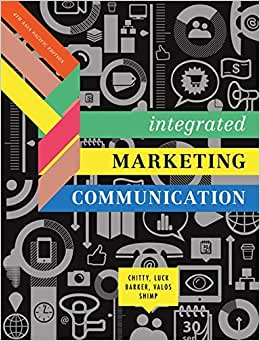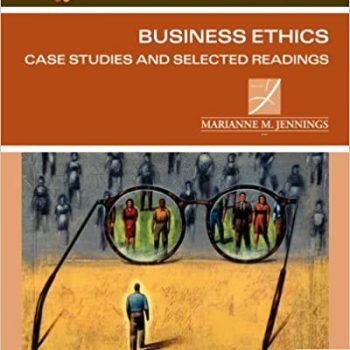Test Bank For An Introduction To Business Ethics 6Th Edition By Joseph DesJardins
ISBN-10: 1260548082 ISBN-13: 978-1260548082
Chapter 1 Why Study Ethics?
1) Which of the following statements is decisive in determining whether or not to study business ethics?
- A) Business managers don’t need to study ethics in order to know how to treat employees, shareowners, and customers.
- B) Business and ethics simply don’t mix. In the final analysis, self-interest, represented by profit, overrides the interests of employees, customers, and communities. Opinion and sentiment get in the way of efficient business decision making.
- C) Ethical concerns are as unavoidable in business as are concerns of marketing, accounting, finance, and human resources. Formal study of business ethics helps address these concerns so that businesses can integrate ethics in their decision making.
- D) The answers to ethical questions are clear-cut enough; all business people already know right from wrong.
2) Which of the following statements correctly describes the relationship between philosophical ethics and ethos?
- A) Individuals who obey the conventions, mores, and rules of their cultures are already acting ethically. No further philosophical reflection is required.
- B) Philosophical ethics distinguishes what people do value from what they should value.
- C) What people do value and should value is, for all practical purposes, the same.
- D) Philosophical ethics is too abstract to be useful in everyday life situations. Following the mores and customs of one’s culture is a more dependable way to make moral decisions.
3) Ethics refers to the beliefs, values, and principles that guide a person’s life and decisions.
4) Ethical behavior and an ethical reputation can provide a competitive advantage in the marketplace and with customers, suppliers, and employees.
5) In a society that values individual freedom, everything that is legal is ethically right and everything that is ethically wrong is illegal.
6) Unlike Generally Accepted Accounting Principles (GAAP) for accountants, there are no principles, standards, concepts, or values common to business ethics.
7) The role of an ethics course should be to convey information to a passive audience, while treating students as passive learners.
8) The unexamined life, according to Socrates, is not worth living.
9) Business ethics is concerned more with reasoning than answers.
10) If something is seriously wrong, the law will prohibit it. Consequently, it’s enough to rely on the law for deciding what’s right or wrong.









Reviews
There are no reviews yet.